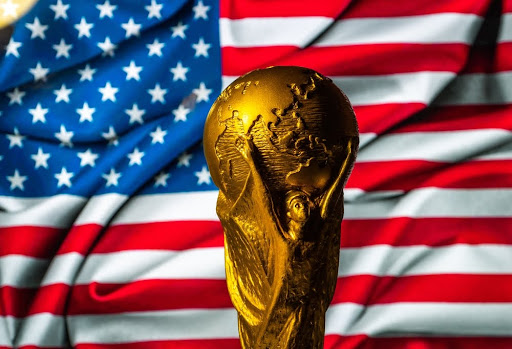Concerns Mount as Tournament Nears
With the 2026 World Cup just over a year away, top figures in the travel and hospitality sectors are voicing growing concern over the United States’ preparedness to host the tournament. The expanded 48-team event, co-hosted with Canada and Mexico, is expected to draw up to eight million foreign visitors and generate billions in economic activity.
Despite the potential benefits, executives including Geoff Freeman, CEO of the US Travel Association, and William Hornbuckle, CEO of MGM Resorts International, warn that the US may be unprepared to handle the surge in international travel. Challenges include visa delays, airport congestion, outdated customs infrastructure, and a lack of coordinated federal planning.
“We’re running out of time,” Freeman said. “It’s only 16 months away from kickoff. There needs to be much more urgency.”
Although FIFA says it is confident in the US government’s cooperation, Freeman and Hornbuckle believe visible action is required. Without swift reforms, logistical failures could mar what President Donald Trump hopes will be “the greatest World Cup that’s ever been played.”
Infrastructure and Security Pressures
The influx of travelers will test US airports, customs processes, and border operations. Long lines, staffing shortages, and insufficient use of biometrics technology could lead to bottlenecks at major entry points. Freeman warned that visitors may face “lines out of airports,” painting an image of a system buckling under pressure.
The US Customs and Border Protection (CBP) says it is preparing a “comprehensive travel facilitation strategy,” including flexible staffing and technology upgrades. Still, CBP acknowledges the high volume of newcomers could affect wait times.
Facial biometrics, now operational at all 55 international airports, are being promoted to reduce delays, alongside programs like Mobile Passport Control and Trusted Traveler Programs. However, airport infrastructure — including radar-based air traffic control systems — remains outdated, with some enhancements not expected until 2042.
Adding further concern is the current shortage of air traffic controllers, already straining airport operations. Freeman and Hornbuckle argue that modernization efforts are lagging behind international standards.
Visa Processing and Global Coordination
Perhaps the most pressing issue is the backlog in visa approvals. With only 42 countries in the visa waiver program, fans from key soccer nations like Argentina, Brazil, Colombia, and Mexico must apply for tourist visas. In countries like Colombia, wait times for interviews exceed 700 days — a timeline that could exclude thousands of fans before World Cup tickets go on sale.
FIFA has responded by increasing communication with US embassies and encouraging fans to apply early. Still, a visa does not guarantee entry, nor does a ticket guarantee a visa.
The State Department insists it is committed to a smooth process. “The safety and security of the United States during the tournament is our top priority,” a spokesperson said. In 2023, the US issued nearly 11 million nonimmigrant visas, and officials say they are prepared for the increased demand.
Federal Action and Task Force Mobilization
President Trump, who was in office during the 2018 World Cup bid, views the tournament as a defining moment for the country. On Friday, he signed an executive order creating a White House task force to oversee preparations. The move was praised by FIFA President Gianni Infantino, who joined Trump in the Oval Office.
“This shows the importance of the FIFA World Cups,” Infantino said. “We want everyone who comes to America to feel safe and welcome.”
Freeman and Hornbuckle called the task force essential, noting that the US lacks centralized ministries of tourism or sports, complicating coordination. They believe the World Cup, followed by the 2028 Summer Olympics and other global events, represents both a monumental opportunity and a risk.
“If we don’t get this right,” Hornbuckle said, “it’s also an amazing opportunity to muck this up.”


